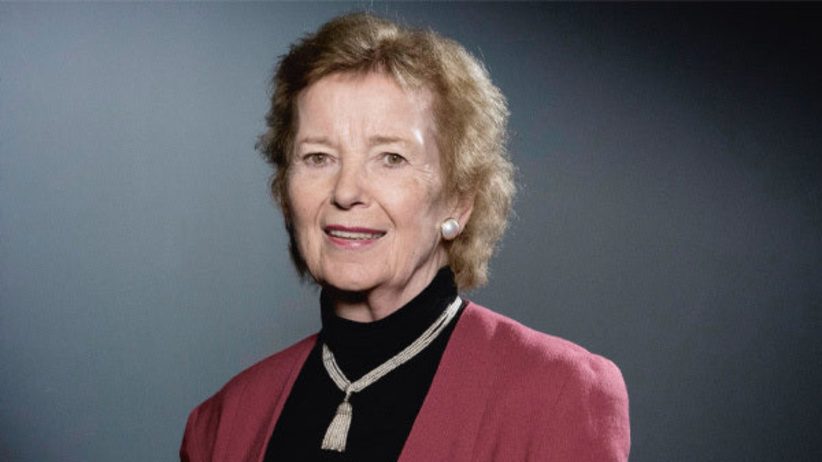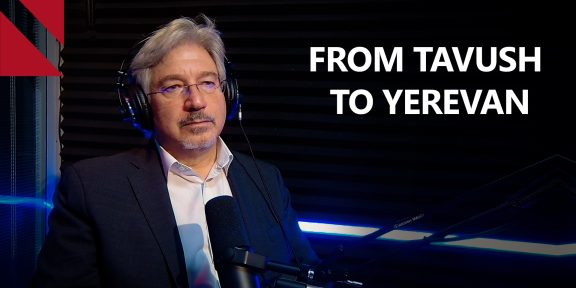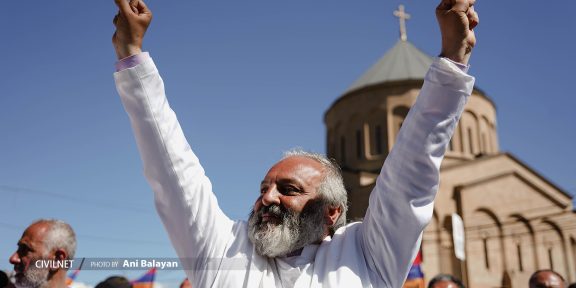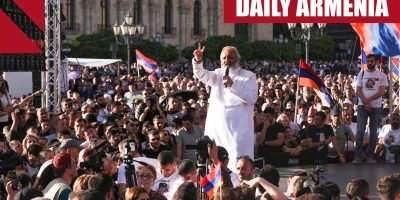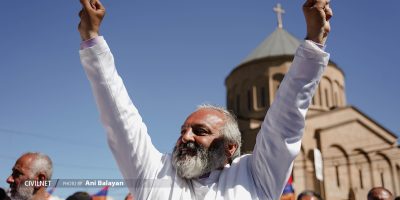By Paul Vartan Sookiasian
Mary Robinson, Ireland’s former president, has become the first high-ranking global leader to call on the global community to expect more from Azerbaijan in the run-up to COP29, this year’s global climate summit, which will be held in Baku. In an op-ed published February 15, Robinson, a former United Nations human rights and climate envoy and chair of the influential Elders group, said Azerbaijan must “address basic human rights which are a core attribute of the COP process.” Ireland’s first woman president, Robinson has long been a well-regarded voice for peace, justice, and human rights. She has also been a leader on the issue of climate change, the crisis the UN’s annual COP summits seek to address.
Those summits involve lengthy debates and negotiations among nearly all the world’s countries to address human-induced climate change. As last year was the world’s hottest on record, scientists are now warning the Earth is reaching a point of no return,with the COP meetings a potential last chance to save the world from the worst impacts of climate change. Participants at recent COPs have included U.S. President Joe Biden, UN Secretary-General António Guterres, and King Charles of the United Kingdom, among others. Azerbaijan knows it can expect a similar roster of global power players, and as such, it likely values COP29 mostly as an opportunity to raise its profile on the world stage. Yet with COP’s critical task of making the world a better place, there are many who believe the host country should actually embody that mission.
In her op-ed, Robinson criticized Azerbaijan’s most recent elections this month, which saw incumbent President Ilham Aliyev receive 92% of the vote. As she described, “the persistent grip of the Aliyev family on Azerbaijan’s political landscape is further underscored by the suppression of fair election processes and respect for human rights.” She referred to election monitors from the Organization for Security and Co-operation in Europe, who found that the election was not democratic, calling concerns over the honest reporting of ballots “ominous signs for the international community”. Accordingly, Robinson argued it is “imperative to address the egregious human rights violations perpetrated by the Aliyev regime,” demanding that it “respect human rights and independent media, release all political prisoners, and conclude a peace deal with Armenia.”
If Azerbaijan expected hosting COP29 to be a pure propaganda coup, statements from leaders like Robinson show that the distinction comes with great responsibility, which Azerbaijan appears unprepared to meet. Instead, Azerbaijan has already lashed out at those who would link hosting COP29 with its human rights record. Earlier this month, U.S. Senator Ben Cardin (D-Md.), who chairs the Foreign Relations Committee, tweeted: “Azerbaijan’s assault on journalists, illegal detention of opposition & alleged use of transnational repression are anti-democratic tactics. Baku must release political prisoners & halt harassment to be part of the international community, ahead of COP29.” In response, a senior Azerbaijani official called the statement “political blackmail”, while a government-linked NGO accused the senator of “Azerbaijanophobia”.
Azerbaijan’s sensitivity to the notion it has certain human rights responsibilities as COP29 host appears to belie a deep insecurity. Though only recently named as host, Azerbaijan has already fully integrated it into its national branding. For example, the rhetoric could not be more soaring in this new commercial for AZAL Airlines, the national carrier owned by political elites, including one of Aliyev’s daughters, Arzu. In it, Fergus Auld, the UK’s ambassador in Baku, suits up to play an AZAL pilot, while saying: “As the world turns its gaze to Azerbaijan for COP29, these flights become more than pathways. They become conduits of collaboration, avenues of action, and bridges to a shared future.”
Yet with the world’s gaze on it, the totalitarian regime in Baku cannot control everyone who might be watching or what they might be looking into, and that attention will certainly not be all to its liking.




